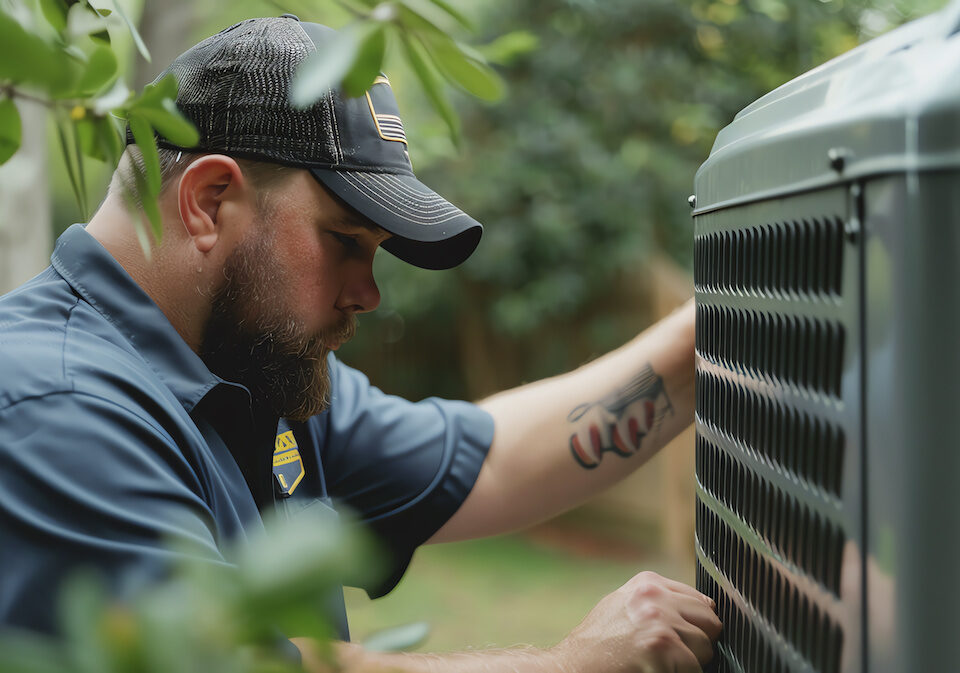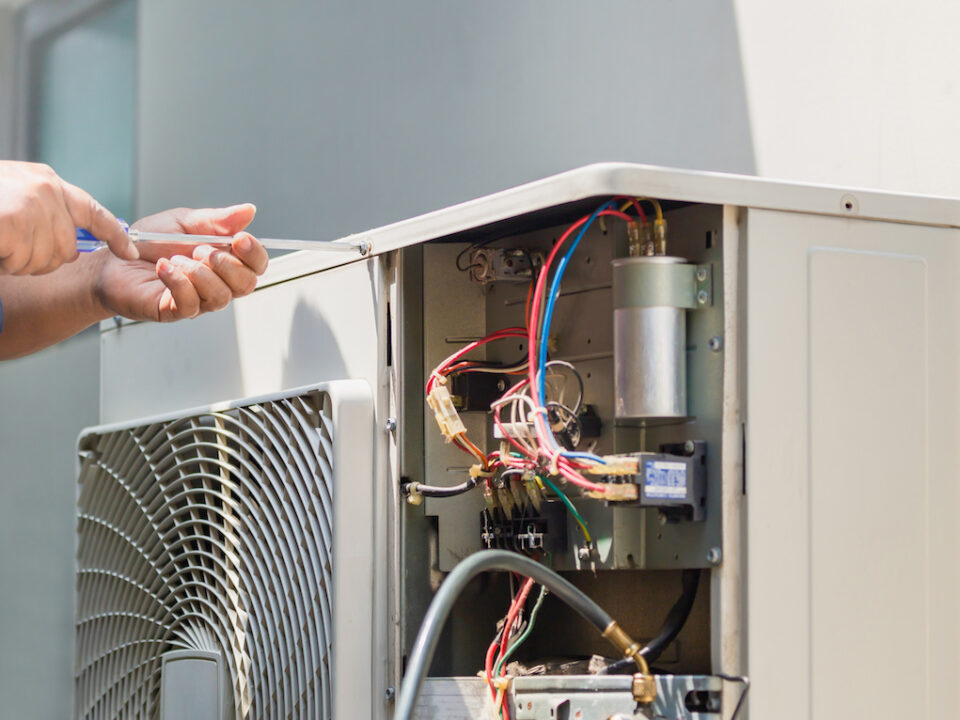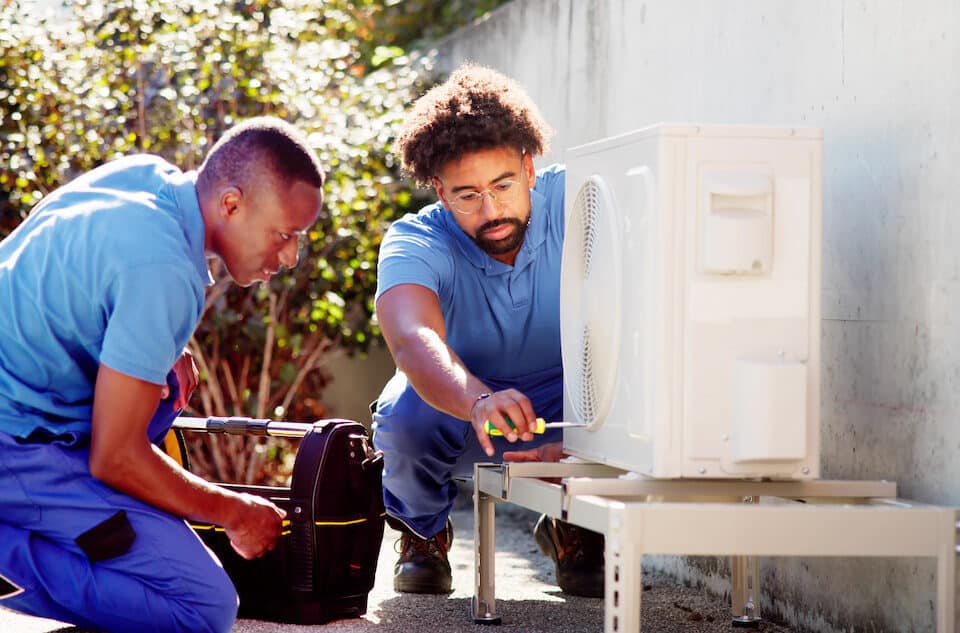The History of Air Conditioning
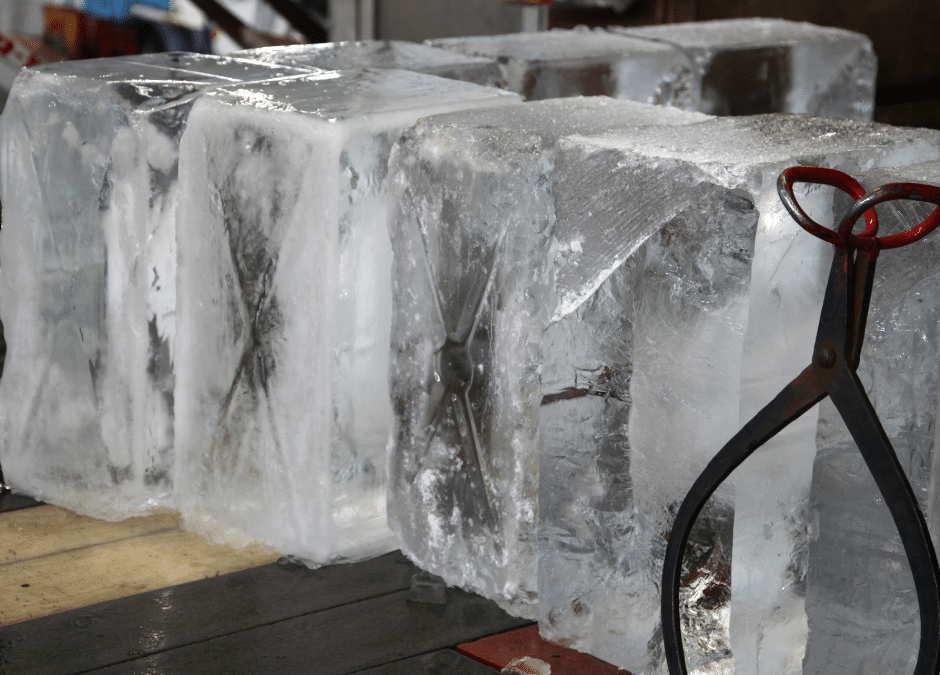
Did you know that Air Conditioning as we know it today actually saves lives? Indeed, it does. And that is why we feel it is essential to know the history of air conditioning as we keep our AC units running well and efficiently.
Sure, we know it makes us cool and comfortable in the hot summer months, but it keeps us safe from heat-related illness as well. In fact, between 1960 and 2004, the number of heath-related deaths in the US was around 80% lower than in the past 60 years. And the responsible party… the air conditioner.
Air Conditioning History’s Humble Beginnings
Long before electricity was invented, a man named John Gorrie of Florida had a great idea. As a doctor, he thought cooling might help fight disease. That is when huge blocks were transported to hospital rooms – which was quite inconvenient. So he set out to invent refrigeration, but that never panned out.
The next attempt was not for hospitals but for a magazine company in New York. You see, Willis Carrier was an engineer at the Buffalo Forge Company. He was charged with coming up with a way to control humidity in a Brooklyn publishing house, as it was wrinkling their magazine pages.
From there, Carrier designed and patented his “Apparatus for Treating Air,” while recognizing other companies might benefit from his technology.
Just like that, Carrier Engineering Corporation was formed in 1902. And this was the birthplace of the Carrier unit. Here is what would follow.
- 1906, Stuart Cramer coined the term “air conditioning.”
- 1914, the first home unit was installed.
This AC unit needed its own room and was 20 feet long and 6 feet wide. The price tag was just as enormous at tens of thousands of dollars. In today’s currency, that translates to hundreds of thousands of dollars. YIKES!
- 1922, Carrier installed the first theater cooling system.
- 1925, the centrifugal chilling system was invented. (still too big and expensive)
- 1928, freon was discovered by Thomas Midgley, Jr.
- 1929, Frigidaire came out with a split-system room cooler, then GE followed with other versions.
- 1931, Schultz and Sherman invented the first window ledge room air conditioner.
- 1935, the first forced-air furnace was introduced.
Modern Advancements
According to Smithsonian Mag,
In 1945, Life magazine published a four-page spread about air conditioning, entitled “Air Conditioning/ After the War it Will be Cheap Enough to Put in Private Homes.” The technology was described as a prewar luxury that was being manufactured in large quantities and sold at a moderate cost in the postwar mass market.
Since 1947, air conditioners were made cheaper and more compact with each invention. In 1957, the first rotary compressor was developed. It made the systems smaller and more efficient. Then, by 1960 most American homes were being built with central AC.
In America today, most homes have HVAC units installed even before other comforts. And as technology improves from year to year, engineers continue to strive for more energy-efficient ways to keep us cool.
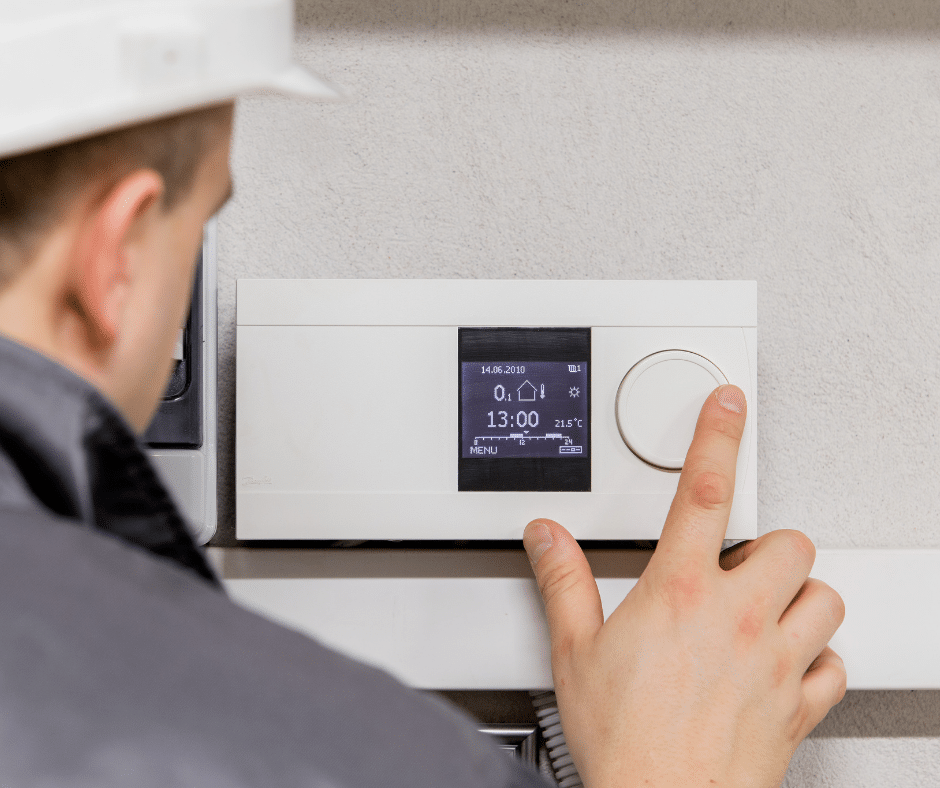
Today’s Technology: Efficiency in Air Conditioning
The continual improvement to technology, on the whole, is making the planet a safer, more efficient place to live. And with today’s energy-efficient technology for HVAC units’ homeowners and businesses alike can save a lot of money on their energy bills with some simple adjustments to updated technology.
- Supply fan speed controls: When the fan runs, it will circulate the air to get it to the right temperature. This way, the fan is speeding up and slowing down as needed. Energy savings are significant when not continually running the fan at full speed and only running when necessary.
- Air-side economizers: This technology pulls outside air into the building, and the exhaust is then released outside. These units are most effective in cooler climates since they utilize the outside air. And the air-side economizer can be fully integrated into your current HVAC system.
- Demand-controlled ventilation: The DCV adjusts the outside air according to the number of occupants in the room. It does so based on fluctuating carbon dioxide levels within the building instead of ventilation fans always running.
- Cooling capacity controls: With this technology, the HVAC compressor runs at different speeds, depending on its needs at that time. And it starts up with less amperage. Most often, this method is beneficial in large homes and commercial buildings.
Today’s HVAC Automation Technology and Accessories
Being connected to your HVAC system doesn’t seem that important until clients hear the benefits. Automation provides the following benefits and more:
- Lower energy bills and maintenance costs
- Improved indoor comfort
- Greater control
In addition, there are several accessories you can add to your HVAC system to improve your home’s energy efficiency. Not only will these accessories reduce your energy bill, but they can even reduce the level of allergens in the air you breathe inside your home.
That is good news for those suffering from allergies.
Some of the HVAC accessory options available include the following:
- Programmable thermostats
- Air filtration systems
- Furnace humidifiers
Today’s Technology: Improving HVAC Energy Efficiency
Raising the level of energy efficiency with your HVAC unit can make all the difference in AC air quality and your energy bill. You see, cooling and heating air uses about half the energy we consume. Therefore, high efficiency and cost have become increasingly more essential. And, not only is energy efficiency good for your home energy bill, but it is suitable for the whole world’s energy usage. The more HVAC units that are using these technologies, the better off our planet will be.
By choosing an Energy-Star system, you can reduce your energy bill and your carbon impact on the planet. The truth is, a high-efficiency air conditioner has significantly lower operating costs than its conventional counterparts. With the average air conditioner lasting 15 years or more, the monthly fee to run the machine should be considered. Be sure to include the system’s entire lifespan to calculate the actual value of the purchase and your ROI.
A high-efficiency air conditioner is a good investment for the following reasons:
Lower Utility Bills: Since these systems cost less to run, they’ll give you lower utility bills throughout the lifetime of your system.
Longer Operating Life: Conventional air conditioners have an average lifespan of 15 years, but high-efficiency models have been shown to last beyond that. The longer the system survives, the more value it provides.
Fewer Repairs Necessary: These models come with more advanced technology. That means they can run with less stress and wear and tear on the system than conventional models and fewer repairs.
Better Comfort Levels in Your Home: These air conditioners are better at their job. You’ll be more comfortable in your home and happier with the system’s performance if you choose the high-efficiency models.
And it lessens your impact on the planet.

Installing the Latest Technology in Air Conditioning
From its humble beginnings to the advanced technology today, engineers constantly make AC better for people and the planet. And with all the technology available today and the increasing technology of tomorrow, homeowners must consider every aspect of the system to determine its value.
At Trust Heating and Air, we do our best to be on top of the HVAC industry’s technological changes and improvements. Our job is to make sure the latest and greatest is available to save you money, keep you comfortable, and improve your air quality.
And as always, be sure to keep your system well maintained to help all the technologies and moving parts of your HVAC working as they should.
If you feel this technology could improve your HVAC system, give us a call today for a free consultation.


